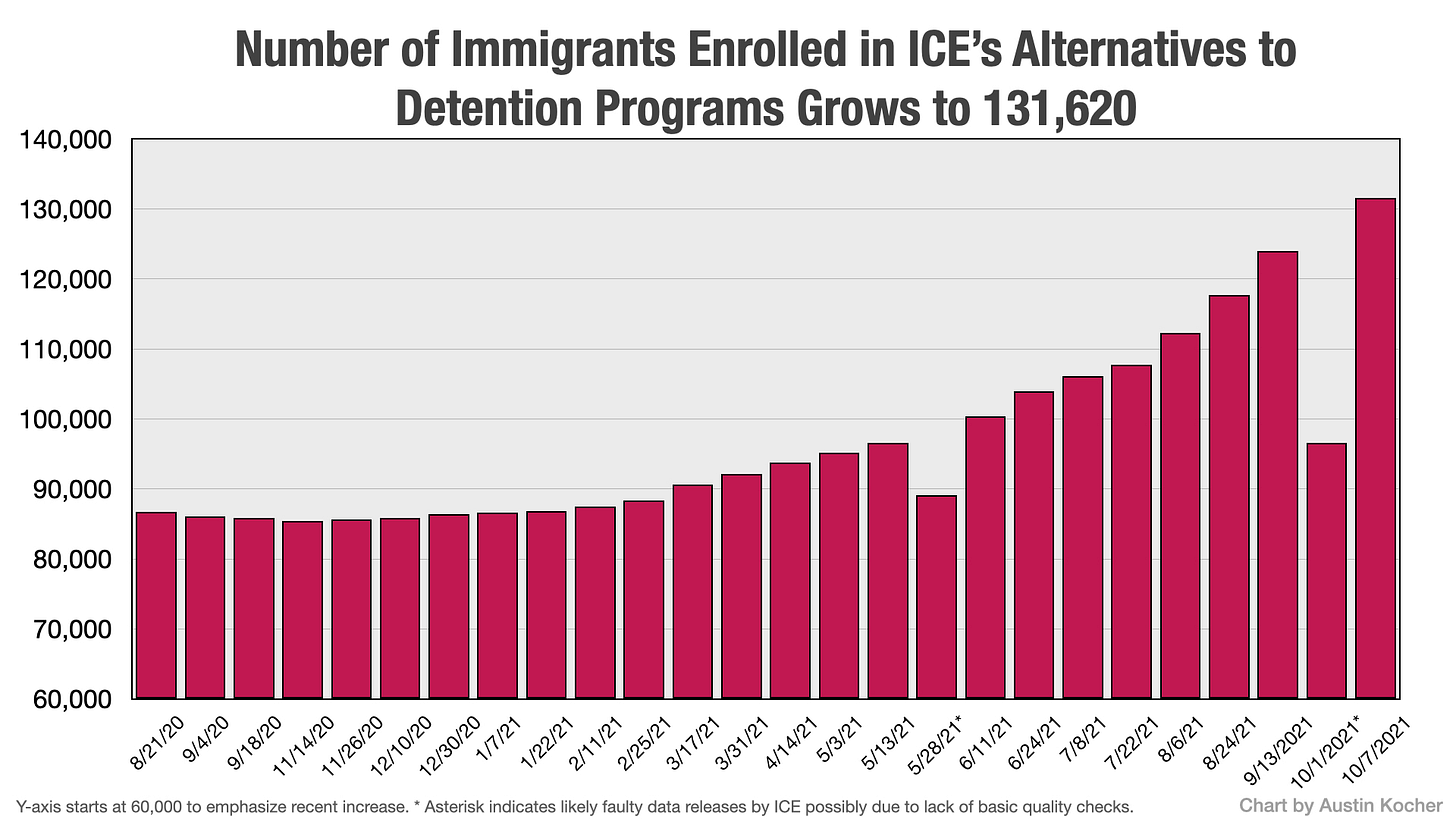ICE's Data Quality Problem Continues
As mandated by Congress, Immigration and Customs Enforcement (ICE) is required to publish data on immigrant detention for the public. The agency releases this data as a spreadsheet about every two weeks on their website here.
But don’t trust it without carefully validating it first. That’s because ICE has released faulty numbers several times over the past year. We spotted this at TRAC because we treat validation as an essential part of our work to provide the public with insight into immigration enforcement policies and practices. I wish the agency would take validation this seriously.
ICE’s Excel file comes with many tables drawn from many different data sources, so an error in one table does not mean that the entire file is wrong. But it does mean that the public should be cautious about the data and at least take care to do due diligence before accepting data points as fact.
The mistake is usually identifiable by comparing the current data with past data trends, which means you can tell when the current numbers are clearly much too low or much too high to make sense. Just to give you an example, the data released by ICE for the number of non-citizens enrolled in its “Alternatives to Detention” programs has been wrong a few times. The graph below shows the total number of people enrolled in “ATD” programs. (To be precise: the dates represent the date on the Excel file, but the date that the file was posted may be later by a day or several days, and the date that the ATD data was extracted from ICE’s databases may also be several days or even weeks in the past.)
The graph below shows the number of people enrolled in ATD programs as of the file marked October 7, 2021. But you can see that the data released on 5/28/2021 and on 10/1/2021 are both illogically and unjustifiably low based on the trend and based on what we know about the Biden administration’s expanding use of ATD.
Hopefully, this gives you some insight into the kind of routine issues with immigration data that should keep you skeptical of official data—trust, but verify—as well as provide an example of why I care so much about the work we do here at TRAC.




